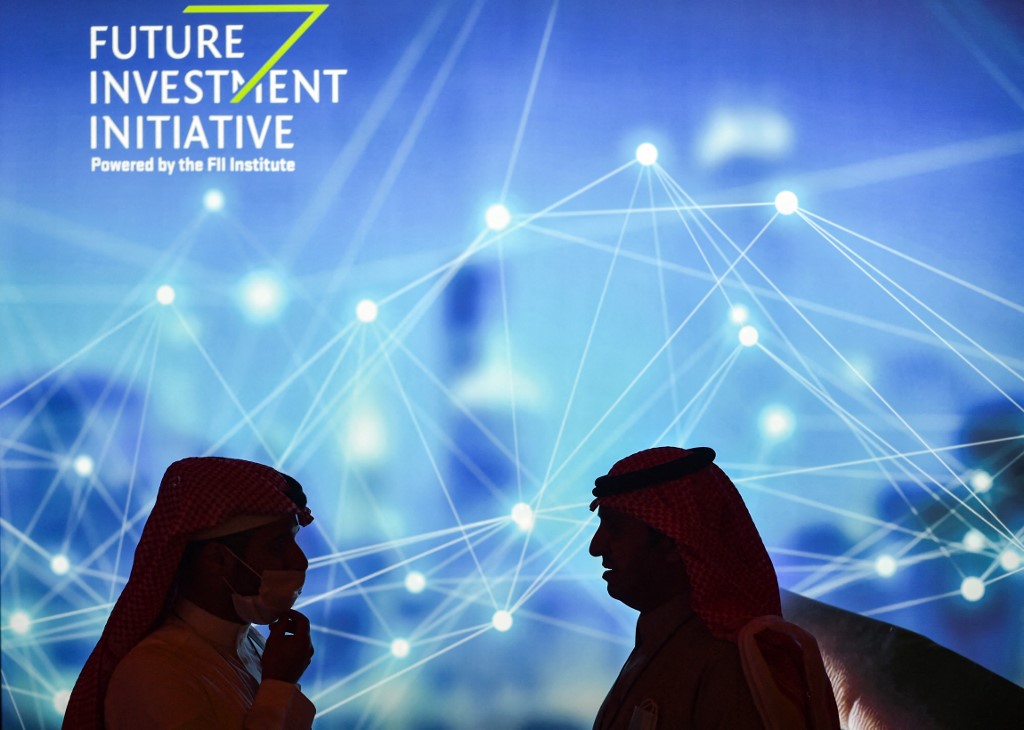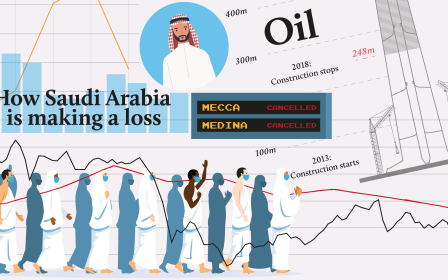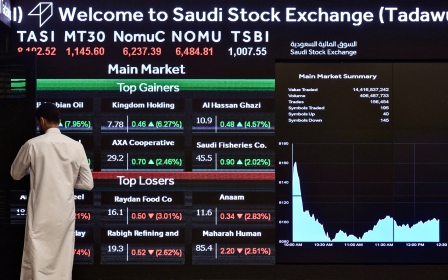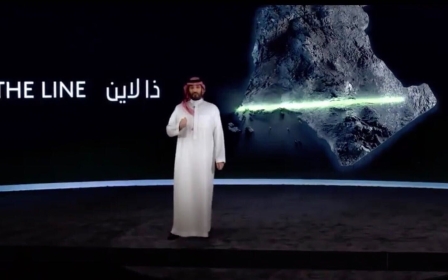Saudi youth take to social media to complain about unemployment
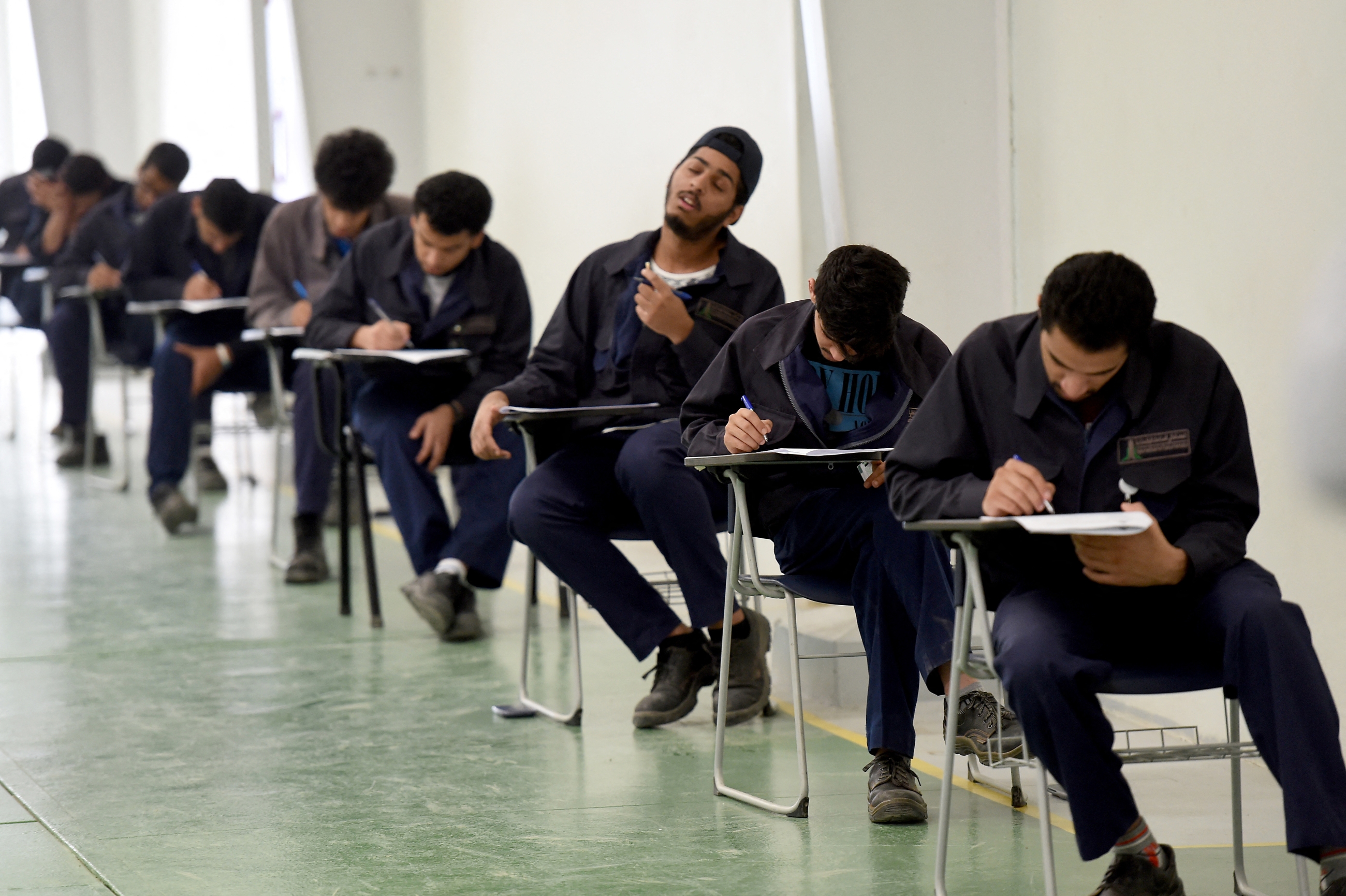
Saudi youths, including many university graduates, have taken to social media to criticise the kingdom over a lack of job opportunities, despite policies announced in recent months and years to address unemployment.
'The private companies are run by expats who just want you to work like slaves on a salary that’s not enough'
- Saudi youth
The hashtag “Unemployed and we won’t stay silent” briefly trended in Saudi Arabia on Tuesday, with users describing their difficulties and frustrations in looking for work - while accusing Crown Prince Mohammed bin Salman, also known as MBS, of being indifferent to their plight.
“I am an engineering graduate and I have come back to Saudi, and I can’t find a job here,” one Saudi youth explained in a video.
“The private companies are run by expats who just want you to work like slaves on a salary that’s not enough - and they are graduates from universities you probably couldn’t even find on Google Maps.”
“We have applied to everything, even in the public sector - and keep getting rejected, and the reason? Because you don’t have a connection to put you through. Where can I get one from?” he asked.
Stay informed with MEE's newsletters
Sign up to get the latest alerts, insights and analysis, starting with Turkey Unpacked
“If I knew tears would achieve something I would have cried - but talking about it is more important.”
Another user said that he had been searching for a job for three years since graduating with a bachelor's degree in IT from New Zealand, but only receives replies stating “we will be in contact”.
Meanwhile, a user named "Hani" claimed to have been jobless since graduating ten years ago, despite utilising the app Taqat - an e-portal set up by the government to help Saudis find jobs.
Covid-19 jobless spike
According to the latest figures released by the Saudi General Authority for Statistics, the unemployment rate was 14.9 percent in the third quarter of 2020. The Covid-19 pandemic caused a marked spike in unemployment, which had hovered around the 12.5 percent mark since 2016.
Among those without work, 61 percent are under the age of 30, and 54 percent have a bachelor’s degree. The unemployment rate is 8 percent among Saudi men, while it stands at 30 percent for the country’s women.
As part of the kingdom’s Vision 2030 project to diversify the economy and move away from oil reliance, the Saudi Labour Ministry announced a process of “Saudisation” in 2016 - a policy which would obligate firms to employ a certain percentage of Saudi workers within their workforce.
Foreign workers play a critical role in the kingdom's economy, making up roughly a third of the country’s population of 35 million.
Since the process of Saudisation was announced, there has been an exodus of migrant workers. Over 650,000 foreign employees left in 2017 and early 2018, while as many as 1.2 million were predicted to have left last year.
However, unemployment statistics and the outcry on social media suggest this has not yet translated into more jobs for Saudi citizens.
Some users posted pictures of people dressed as graduates serving hot drinks, to stress the point that the country’s educated youths were struggling for opportunities.
Others pointed the finger at the crown prince and his modernisation policies, which were deemed not to be benefiting job-seekers.
One user posted a picture of a Vision 2030 symbol next to a traffic sign which read “The vision is not clear.”
Projects launched to boost employment
In recent months, Saudi Arabia has made a number of announcements in an attempt to boost foreign investment and create job opportunities.
The crown prince launched “The Line” in January, an ambitious plan to construct a zero-carbon city built in a 170km straight line, the first major construction project for the $500bn futuristic megacity Neom.
He said that the project would contribute $48bn to the country’s economy and create 380,000 jobs. However, many observers have described it as a vanity project, and some have questioned its feasibility.
Later that month, bin Salman said that the Saudi Public Investment Fund would invest $40bn annually in the domestic economy over the next five years, in an attempt to tackle soaring unemployment and the Covid-19-triggered economic downturn.
He also unveiled plans to transform Riyadh into one of the world’s top ten city economies, during an interview at the Future Investment Initiative earlier this year.
To do so, the crown prince aims to increase the capital’s population from 7.5 million to between 15 and 20 million by 2030, claiming that “good demand creates good supply”.
In addition, Riyadh announced two weeks ago that it would stop signing contracts with companies whose regional headquarters were based outside of the kingdom from 2024.
The move is seen as an attempt to jostle for foreign investment and job opportunities from multinational companies which often prefer to be based in the United Arab Emirates, where alcohol is permitted and everyday life is comparatively liberal.
Middle East Eye delivers independent and unrivalled coverage and analysis of the Middle East, North Africa and beyond. To learn more about republishing this content and the associated fees, please fill out this form. More about MEE can be found here.


